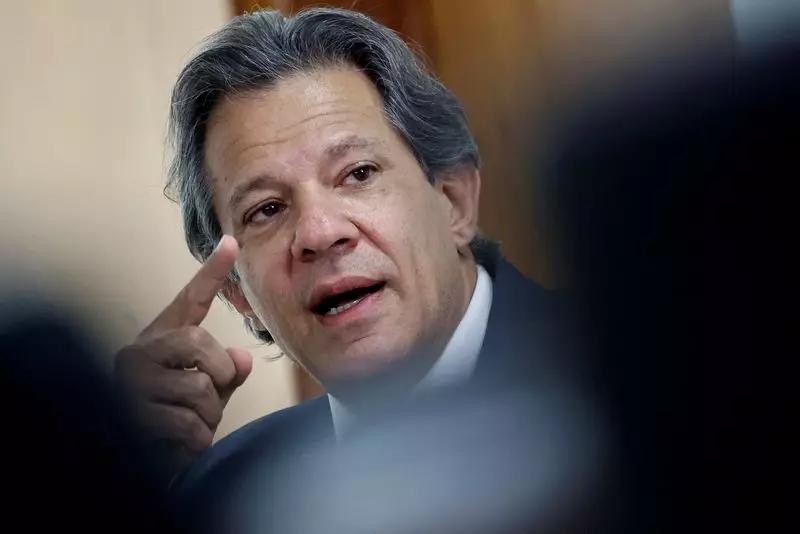Brazil’s economy has been facing pressing challenges, particularly with the alarming devaluation of the Brazilian real against the U.S. dollar. This has reignited discussions about the country’s fiscal health and the urgent need for a comprehensive financial strategy to manage rising mandatory expenditures. As the government contemplates an extensive fiscal package, the tension surrounding its delayed announcement underscores the broader uncertainties within Brazil’s economic framework.
Finance Minister Fernando Haddad recently asserted that while significant obstacles to the forthcoming fiscal package have been addressed, President Luiz Inacio Lula da Silva has advocated for extending budget cuts to an additional ministry. This move illustrates the government’s commitment to tightening fiscal discipline, which is crucial for regaining investor confidence and stabilizing the local currency. The insistence on adding another ministry to the cuts, however, raises questions about the feasibility and potential repercussions of such a decision.
In the lead-up to this fiscal announcement, substantial consultations have occurred among various ministries. Meetings have included discussions with key sectors such as Health, Education, and Pension. These deliberative efforts signal a recognition that fiscal reforms cannot be one-dimensional; they need to account for the social implications of spending cuts, particularly in sectors that directly impact citizens’ welfare. It also reflects a government endeavor to collaborate with multiple stakeholders before finalizing the package, ensuring a more inclusive approach to governance.
Despite expectations that a fiscal package would be unveiled post the municipal elections in late October, Finance Minister Haddad did not provide a definitive timeline, which has led to speculation about potential delays. This situation creates an atmosphere of uncertainty, imperative for the markets to get a clear indication of the government’s directions. The lack of a public timeline could potentially exacerbate the depreciation of the Brazilian real as businesses and investors react cautiously to ongoing indecision.
Looking forward, Haddad expressed optimism about garnering legislative support for the fiscal measures, suggesting that they could be passed by Congress within the current legislative year. Nevertheless, he emphasized that adjustments had been made to enhance the comprehensibility and acceptance of the measures, which illustrates the government’s recognition of the need for transparency and public buy-in. Ultimately, the effectiveness of any fiscal package will rely on not only its content but also on its ability to be translated into actionable policies that resonate with both Congress and the Brazilian populace.
While Brazil’s fiscal package promises to address crucial economic issues, the complexities surrounding its implementation, the dynamic political environment, and investor sentiment can significantly influence its success. Moving forward, the government’s capacity to navigate these challenges will be pivotal in restoring economic stability and assuring citizens of an accountable fiscal policy.

